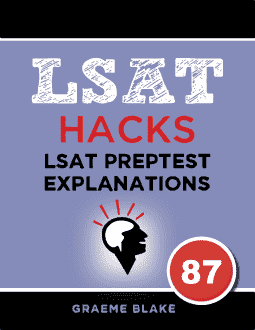QUESTION TEXT: Principle: If someone makes an error, it is unethical for…
QUESTION TYPE: Principle
CONCLUSION: Mark’s use of Rashmi’s clients’ e-mail addresses was unethical.
REASONING: If you use a coworker’s error to your own advantage, you are acting unethically.
ANALYSIS: The conclusion in this question was that Mark acted unethically. Therefore, in order to justify the application of the principle, he must have used a coworker’s error to his own advantage. We know he used Rashmi’s clients’ e-mail addresses to advance his career, but we are missing the error. So the correct answer will be one that tells us what Rashmi’s error was.
___________
- While Mark is certainly acting unethically in this scenario, this is not a correct application of the principle. We need a case where Mark is using an error Rashmi made to his own advantage.
- This answer is missing the error. Unethical conduct from Mark does not match our principle if it does not result from an error on Rashmi’s part.
- Here, Rashmi is voluntarily sharing her clients’ e-mail addresses with Mark. She intended for him to use them – it wasn’t an error. So we can rule this out.
- CORRECT. Rashmi accidentally gave Mark access to her clients’ e-mail addresses – an error. He took advantage of this. This fits our principle.
- Mark finding these clients through market research is not Rashmi’s error, so this answer does not fit our principle.
Recap: The question begins with “Principle: If someone makes an error, it is unethical for”. It is a Principle question. Learn more about LSAT Principle questions in our guide to LSAT Logical Reasoning question types.
More Resources for Principle Questions
- Intro Course lesson: This intro course lesson covers Principle questions.
- Mastery Seminar lesson: This LR Mastery seminar lesson covers principle questions.


Leave a Reply